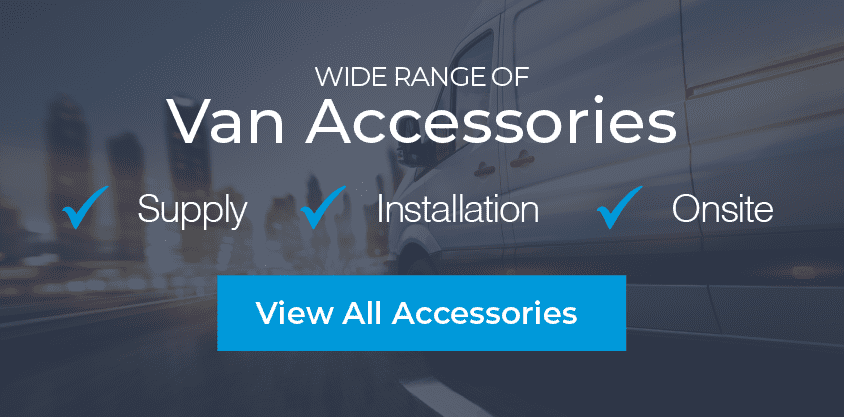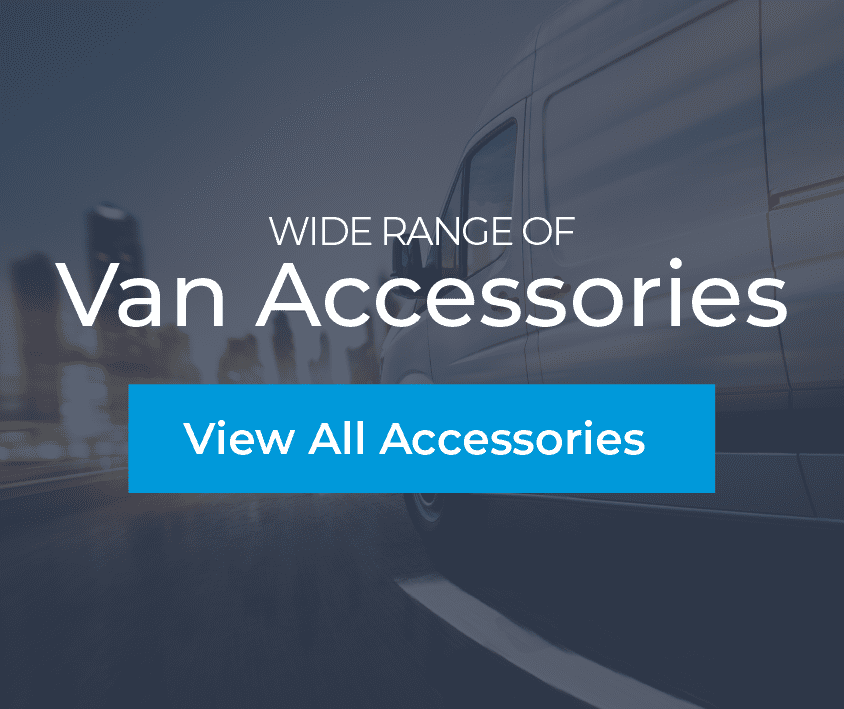Your essential guide to buying a new panel van
When you decide to buy a new panel van, there are a couple of key questions you first need to ask yourself. These are equally important whether you’re planning to use the van for professional or domestic purposes, no matter what sector or industry you may be in. Here at Van Discount we’ve got decades of experience supplying vans for customers across the UK, which puts us in an excellent position to highlight exactly what your key considerations should be. You don’t need to necessarily have all the answers, but giving each one at least some thought should give you an excellent starting point when it comes to discussing your purchase with us!
What type of panel van do you need (and how big is it going to be)?
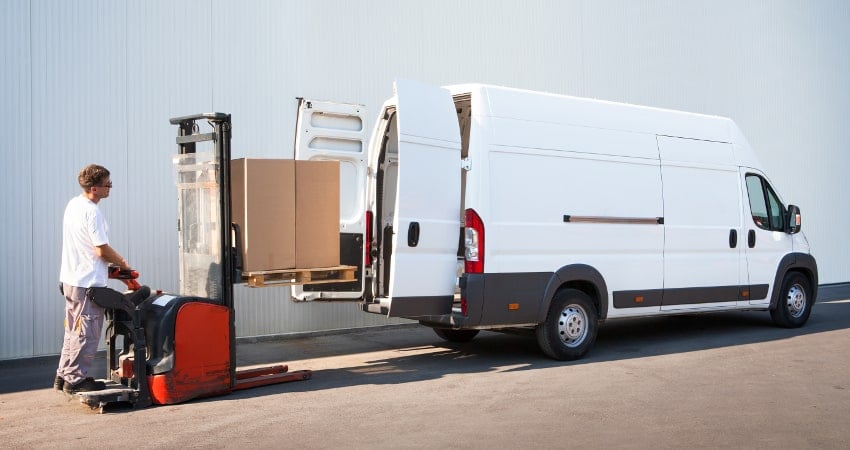

One of the most fundamental questions you’re going to need to ask first is: what do you need your van for? This is going to affect whether you decide to get a normal panel van, a Luton or box van, or even a tipper van or complete conversion.
What will you be transporting?
The answer to this question obviously has a number of important implications for the size and interior of your van. Will you be transporting tools, perishable materials or valuable/breakable cargo? Does your cargo require you to maintain any specific conditions in the interior of your van? Will you need refrigeration or a plywood lining? If you’re planning on routinely carrying large or tall items, you might want to consider a high roof van like the range of new Ford vans including the Ford Transit. In fact, that’s a good point to move onto:
How big will your van be?
The specifications and dimensions of your van are important, and not just for what you’ll be carrying. Will you need to be visiting potentially awkward or narrow locations, such as building sites or loading bays? After all, the larger the van, the more storage capacity and versatility – but it often comes at the cost of tougher manoeuvring in tighter spaces.
Where will you be driving it?
The environment and locales in which you’ll drive your van will be another major factor. If you’re just working in town, then a small or medium sized van will be more manoeuvrable and easier to get about in. Longer-range work such as intercity deliveries are better suited for medium and large sized vans such as Luton vans. However, don’t assume that bigger is automatically better! The extra weight of a bigger van has an impact on its payload capacity. If you’re driving on a standard driving licence, legally your van is limited to a maximum gross vehicle weight of 3.5 tonnes. (This vehicle weight is sometimes known as Mass In Transit.) Somewhat counterintuitively, that means certain heavier cargo might be better suited to a lighter van that has a greater payload capacity.
How many seats will you need?
You’ll need to make sure you account for any extra crew members on your jobs, whether temporary or permanent. Sole traders can often make do perfectly well with a two-seater van, whereas larger teams or fleet vans may need extra seats (and therefore bigger vans).
What’s its fuel economy?
As with any vehicle, fuel economy also is an important consideration when buying a van. Typically, a van will have a standard V6 engine, but some smaller models with four cylinders offer fantastic value and performance for frequent shorter journeys. For vans with larger engines, such as V8 and V10, running costs will be higher but these will typically be offset by their suitability for higher paying jobs, such as haulage.
The specs of your van and accessories
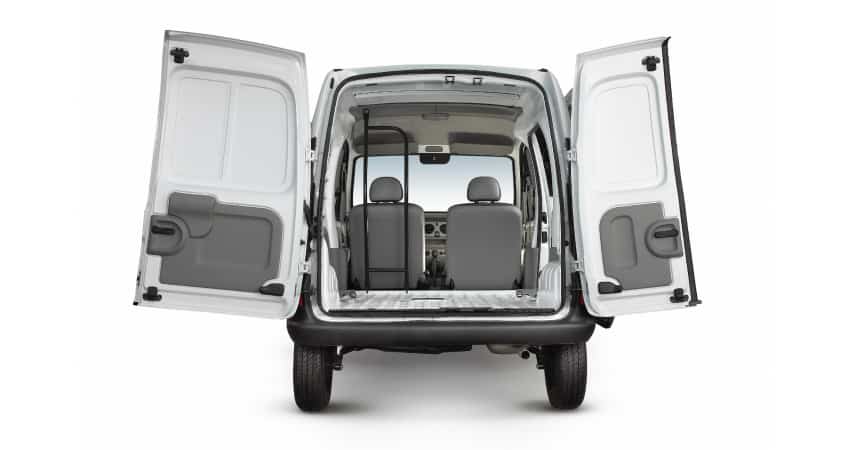

The specification details of your van will be another primary consideration, so you’ll want to think about whether you plan to make any changes, either at the point of purchase or further down the line. Here at Van Discount, we include a comprehensive list of each van’s specs on its individual product page. Useful extra features often include sliding doors for easier access to the load area, or floor runners to make the loading and unloading of particularly heavy or bulky cargo even easier. Then there’s security to think about. We offer several security products in our range of van accessories, like deadlocks and security trackers in case your van is targeted by thieves.
Of course, your specifications will vary depending on your personal circumstances and what jobs you plan to use the van for. A trader who requires storage will need shelving and racking, and possibly even load bay linings for extra security. Delivery drivers and on-call engineers, on the other hand, might prioritise navigation and connected services.
As well as practical and security accessories, you might also want to think about comfort features too, depending on who’s using the van. This is when it’s a good time to decide: do you need the van for work only, or is it for domestic use too? Comfort can be as important as capacity when choosing a van, especially if you’re going to be covering a lot of miles. An entertainment system could be a good idea for anyone travelling with children, or to help professional drivers stay alert when taking longer journeys alone. Air conditioning is also an ever-useful benefit for passenger comfort, particularly in a van with fewer windows.
Do you need a complete van conversion?
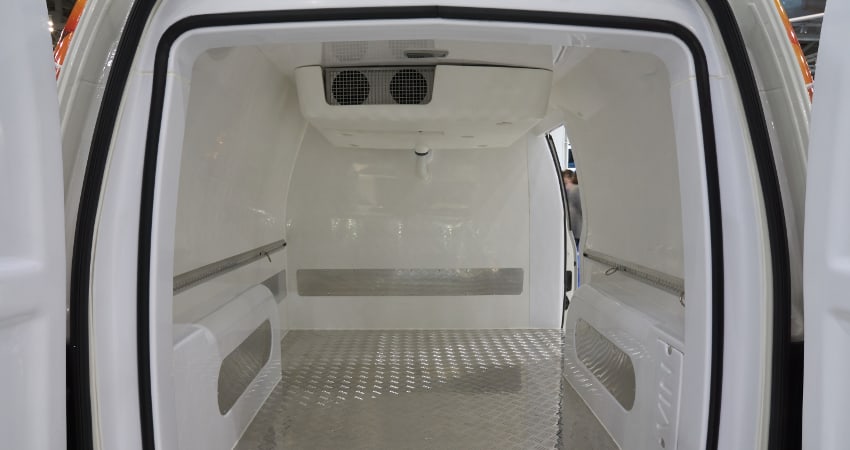

Van conversions are a great option for those who require even more versatility from their commercial vehicle. We’re able to provide these using our very own bespoke van conversions service. You’ll find this the ideal choice if you know what you want your van to do, but don’t know exactly what you need. In a nutshell, we’ll find you the perfect chassis van to match your requirements, then build your van’s body to your precise specification, including accessories such as reverse parking cameras, tail lifts and tow bars. These sorts of conversions are normally regarded as being considerable investments, but our business model means that we’re able to keep our production costs down, and pass these savings onto you, the customer. All told, it means our bespoke van conversions can often end up being far more cost effective than the prices you might be braced for! Of course, that leads us onto one of the final big questions…
How much will your new van cost?
In an ideal world, we know that many people would prefer to pay for their brand new van outright, and have that be the end of it. Realistically though, relatively few people are in the position to make these sorts of payments. The majority will likely be paying for their van on finance. If you’re one of them, you’ll be happy to hear that we’ve got several options available for you here at Van Discount when it comes to paying for your van:
- Hire purchase
- Finance lease
- Contract hire
You can read more about them on our Finance page, and decide which one is best for you. Naturally, your budget will play a major part in helping you to decide whether you want to go for a brand new van for sale or nearly new van. Even if you find that buying brand new is a bit beyond your budget, other available options include second-hand vehicles or bespoke finance and leasing options (as we’ve just touched upon), which we can will tailor to suit your situation. From monthly repayments and road tax, to repairs and resale value, factoring in the potential cost of your new van is an essential step that will help you make the right decision when it comes to purchasing.
Whatever the answers to these questions, rest assured that at Van Discount, we’re here to help. With decades of industry expertise behind us, we’ve got the knowledge and the skills to match you with the van that suits your requirements down to the ground. Feel free to give us a call on 01282 872 530, and we’ll see what we can do to help!




